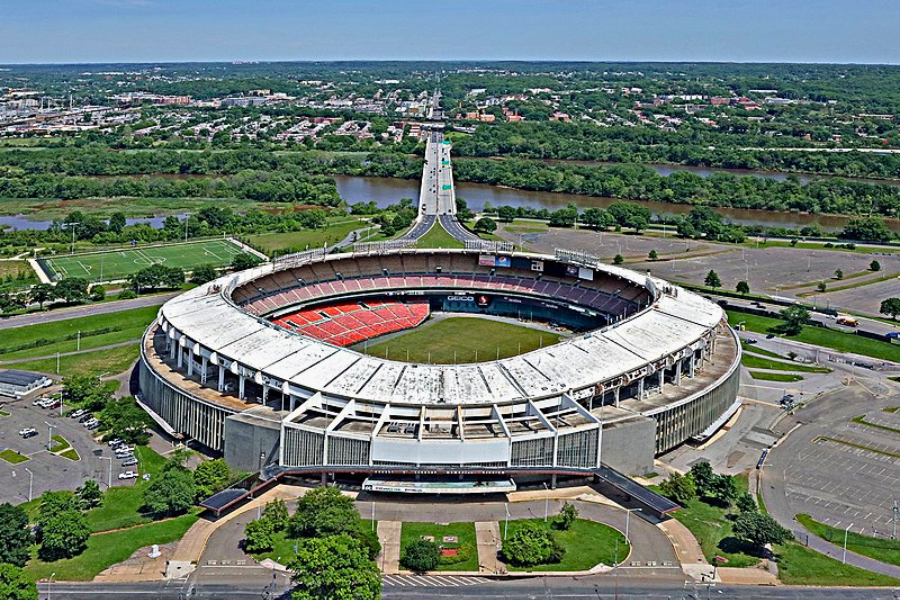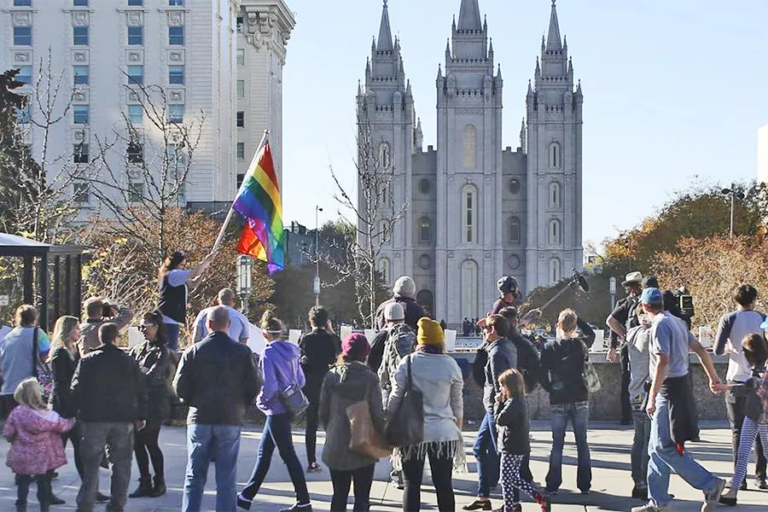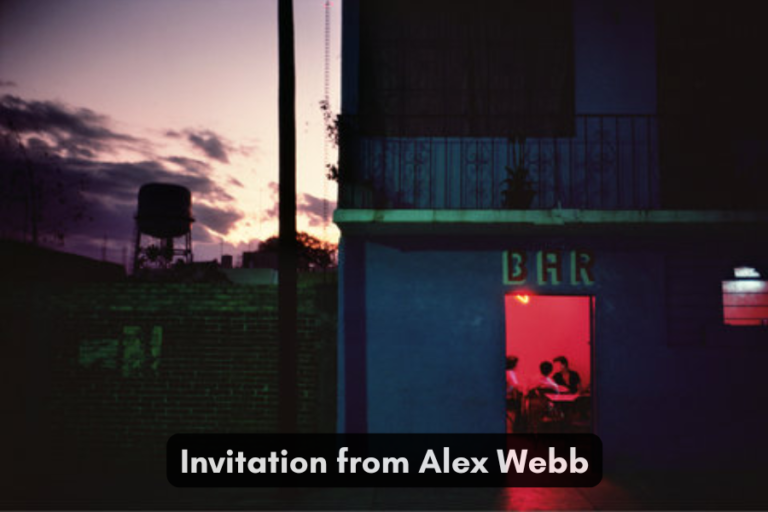
White Elephant RFK Stadium
Introduction: The Fate of the White Elephant RFK Stadium
Nestled in the heart of Washington, D.C., the Robert F. Kennedy Memorial White Elephant RFK Stadium once stood as a pillar of the city’s sports and entertainment scene. Since its grand debut in 1961, it has hosted a variety of high-profile events, including NFL and MLB games, concerts, and rallies. Yet, as time passed, RFK Stadium became less and less relevant in the face of the city’s growth and changing demands. Now, it is often referred to as a “white elephant”—a term used to describe a large, expensive, and impractical structure that no longer serves its original purpose. This article takes a look at the stadium’s past, its decline, and its uncertain future, explaining why it has come to embody this label.
The Rise of a Historic Venue
RFK Stadium’s Grand Opening
The idea for the White Elephant RFK Stadium came about in the late 1950s as Washington, D.C. sought a state-of-the-art, multi-use sports facility. Designed by the architectural firm Clark and Rapuano, the stadium began construction in 1958 and opened in 1961 under the name D.C. Stadium. It quickly became a landmark, attracting local sports fans and playing a major role in Washington’s culture.
The stadium’s design was revolutionary for its time, featuring a circular bowl shape that provided excellent sightlines from nearly every seat. Additionally, it boasted a retractable roof, which was an innovative feature in the 1960s. During its peak, RFK served as the home for the Washington Redskins (now the Commanders) and the Washington Nationals (temporarily) and hosted numerous major events, including concerts by legendary artists like The Rolling Stones and Elvis Presley.
Memorable Events and Cultural Influence
Over the years, the White Elephant RFK Stadium became the site of countless unforgettable moments in sports history. In 1969, the Washington Senators played their final game there before relocating to Texas. In the 1990s, the stadium briefly served as the home of the Washington Nationals following their move from Montreal, before they eventually settled in Nationals Park. The venue also hosted significant soccer matches, including the 1994 FIFA World Cup and numerous U.S. Men’s National Team games.
Beyond the realm of sports, RFK Stadium became an important part of Washington’s political and cultural landscape. It hosted rallies such as the Civil Rights Movement’s events, as well as concerts that left a lasting impact on the cultural scene of the 1960s and beyond.
Wiki
| Category | Details |
| Full Name | Robert F. Kennedy Memorial Stadium |
| Nickname | RFK Stadium |
| Location | Washington, D.C., United States |
| Opened | October 1, 1961 |
| Capacity | 45,000 (original) – Reduced after renovations |
| Architectural Style | Modernist |
| Primary Tenants | Washington Redskins (1961-1996), Washington Nationals (2005-2007), D.C. United (1996-present) |
| Major Events | 1968 MLB All-Star Game, 1994 FIFA World Cup, concerts by The Rolling Stones, U2, etc. |
| Demolition Plans | Approved for demolition (2023) for redevelopment |
| Proposed Redevelopment | New stadium for the Washington Commanders, mixed-use development, green spaces |
| Historical Significance | Venue for civil rights rallies, significant sports history, and political events |
| Known For | Multi-purpose stadium hosting football, baseball, soccer, and concerts |
The Downfall of RFK Stadium
Changing Needs and Rising Expenses
By the end of the 1990s, the role of the White Elephant RFK Stadium in Washington’s sports scene began to diminish. The Washington Redskins, seeking more modern facilities, moved to FedEx Field in Maryland in 1997. Then, in 2008, the Nationals relocated to their new home, Nationals Park. With these departures, RFK largely sat empty.
As the years passed, the effects of age became increasingly evident. The stadium, once a marvel of modern architecture, now required frequent and costly repairs. Its concrete and steel structure, though strong, needed reinforcements, and many of its features became outdated. RFK Stadium became infamous for its high maintenance costs, which were estimated at $4 million annually, yet it remained largely unused, making such expenditures unsustainable.
The “White Elephant” Reputation
RFK Stadium earned the moniker “white elephant” as it became clear that the massive structure, once bustling with activity, had become more of a financial burden than an asset. The stadium no longer served the needs of the modern city, and with the lack of major tenants, its upkeep was deemed wasteful. This led to the growing perception that the stadium was an outdated relic, ill-suited to the needs of contemporary Washington, D.C.
Exploring the Future of RFK Stadium
The Debate Over New Development
For years, officials in Washington, D.C. have considered the possibility of redeveloping the RFK site. Some proposals focused on the idea of constructing a new stadium to bring a professional sports team back to the city, such as the Washington Commanders, whose franchise had left decades earlier. Given the stadium’s proximity to the U.S. Capitol, the site was considered valuable for redevelopment. Yet, navigating the path toward a new stadium has been filled with challenges.
Plans for RFK Stadium’s Demolition and Future Use
The Demolition Process
In recent years, discussions surrounding the White Elephant RFK Stadium have leaned heavily toward demolition. While the stadium remains a historical symbol, many argue that clearing it away could make room for a new development. In 2023, the National Park Service (NPS) approved plans for tearing down RFK Stadium, and since then, the city has begun preparing for demolition. Asbestos removal and other preliminary work have taken place, but the final demolition phase has yet to begin.
This decision, however, is controversial. Many residents of D.C. have strong emotional connections to RFK Stadium, leading to significant opposition to its demolition. Nonetheless, some city officials contend that the site is better suited for redevelopment that could bring modern sports and entertainment venues, along with economic growth for the surrounding neighborhoods.
Proposals for a New Stadium
One of the most widely discussed plans for the future of the RFK site involves the construction of a new stadium for the Washington Commanders. The team has expressed interest in returning to D.C., and the location of RFK is seen as an ideal spot for a new sports complex. In February 2024, a bill was passed by the U.S. House of Representatives to extend the lease on the RFK site for 99 more years, which could pave the way for redevelopment efforts.
Should this new stadium plan come to fruition, it would likely be part of a broader mixed-use development that might include retail, residential, and entertainment spaces. Such a development could not only revitalize the area but also create jobs and boost the economy. Proponents argue that redeveloping the RFK site represents a significant opportunity to inject new life into the area.
Other Ideas for the Site
While the idea of a new stadium for the Commanders is at the forefront of discussions, other proposals have emerged as well. Some suggest transforming the site into a large public park with sports fields, walking trails, and green spaces. Others envision a more tech-centric development featuring offices, luxury apartments, and high-end retail.
However, redevelopment could also lead to concerns about gentrification. With Washington, D.C.’s population expanding rapidly, there is a fear that new developments could displace long-standing residents, creating an environment where only the wealthy can afford to live. Ensuring that the redevelopment benefits all members of the community will be a key challenge.
Economic and Cultural Impacts of Redeveloping the RFK Site
Economic Benefits
Revitalizing the RFK site could generate substantial economic benefits for Washington, D.C. A new sports and entertainment venue could attract high-profile events such as NFL games, concerts, and other large-scale attractions, providing a significant economic boost. Additionally, the creation of new commercial and residential spaces could spark further investment in the surrounding areas, helping to breathe new life into long-neglected neighborhoods.
Preserving Cultural Heritage
While redeveloping the RFK site presents economic opportunities, it’s crucial not to forget the stadium’s historical and cultural significance. For many, RFK Stadium represents a pivotal moment in Washington’s history, from its role in civil rights movements to its impact on the city’s sports culture. Efforts to commemorate the stadium’s legacy, such as through historical plaques or community programs, should be a part of any redevelopment plan to ensure that the past is honored.
Key Facts about the White Elephant RFK Stadium:
- Historical Significance:
Opened in 1961, the White Elephant RFK Stadium has been a landmark in Washington, D.C., hosting significant events such as NFL games, MLB games, and concerts by legendary artists like Elvis Presley and The Rolling Stones.
- Multiple Teams:
Over the years, RFK Stadium served as the home for several professional sports teams, including the Washington Redskins (now Commanders), the Washington Nationals (temporarily), and the D.C. United soccer team.
- Cultural Impact:
In addition to sports, RFK Stadium became a venue for major political rallies and cultural events, such as the 1968 Democratic National Convention and the 1994 FIFA World Cup.
- Declining Use:
By the late 1990s and early 2000s, the stadium faced a decline in use as major tenants, including the Washington Redskins and the Nationals, moved to newer, more modern venues. This led to the stadium being underused and costly to maintain.
- Redevelopment Plans:
In recent years, there have been ongoing discussions about demolishing the White Elephant RFK Stadium and redeveloping the site into a mixed-use development that could include a new stadium, residential spaces, retail outlets, and recreational areas.
Conclusion: The Future of the White Elephant RFK Stadium
The White Elephant RFK Stadium, a once-celebrated venue, now stands as a symbol of Washington, D.C.’s vibrant past. Despite hosting some of the city’s most important events, its decline highlights the challenges of maintaining aging infrastructure. The stadium’s high upkeep costs and lack of a steady tenant have made it more of a burden than a benefit, leading to its designation as a “white elephant.” Yet, its future remains uncertain, with discussions around its demolition and redevelopment still ongoing.
The debate about RFK Stadium is not just about the structure itself, but about how the city balances its historical legacy with the need for progress. How Washington chooses to redevelop the RFK site will shape the area’s future, and how it honors the past will determine whether the stadium’s legacy lives on in some form. Whatever the outcome, the story of RFK Stadium is far from finished.
Frequently Asked Questions
1. Why is RFK Stadium considered a “white elephant”?
RFK Stadium has earned the title of “white elephant” because, while it was once a major venue with significant historical importance, maintaining the stadium became too expensive for the city. As it grew older, it lacked a consistent stream of events and tenants, leading to high upkeep costs that no longer justified its existence in its current form.
2. What notable events were held at RFK Stadium?
During its prime, RFK Stadium was the site of many unforgettable events. It hosted games for the Washington Redskins (now Commanders) and briefly served as home for the Washington Nationals. Major concerts took place, with performances from iconic artists like Elvis Presley, The Rolling Stones, and U2. It also witnessed the 1968 MLB All-Star Game, political rallies, and even matches from the 1994 FIFA World Cup.
3. What are the plans for redeveloping the RFK site?
Redevelopment proposals for the RFK site mainly focus on demolishing the stadium and repurposing the land for new uses. These plans include building a new stadium for the Washington Commanders, alongside mixed-use spaces that could feature housing, retail stores, and recreational areas. The goal is to breathe new life into the area and spur local economic development.
4. Is a new stadium going to be built at the RFK site?
Yes, there is a proposal to build a new stadium for the Washington Commanders at the RFK site. This development is part of a larger plan that could transform the area into a bustling entertainment and community hub, bringing professional sports back to D.C. while also serving as a venue for various events.
5. What’s next for the RFK site?
The RFK site’s future remains uncertain, though plans for redevelopment are moving ahead. Some ideas focus on constructing a new stadium, while others advocate for more public spaces or community-oriented projects. The ultimate direction will depend on ongoing discussions and local government approvals, with the aim of ensuring that any changes benefit both the city’s economy and its residents.
Discover the latest news and updates on The Blog Verge






